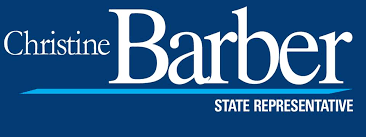Lawmakers push for free MBTA bus service
Eagle Tribune, July 29, 2021
BOSTON — Transit advocates and some lawmakers want to make MBTA bus rides free in order to cut travel times, improve service and ease the burden on low-income riders.
Sen. Pat Jehlen, D-Somerville, said Wednesday the flow of federal relief funds into the state make this an opportune time to test free fares, which also will boost T ridership as the agency recovers from the pandemic.
“It’s also a crucial time as commuting and work patterns are changing,” Jehlen told members of the Joint Committee on Telecommunications, Utilities and Energy.
The committee is weighing several plans that would either provide free bus service or call for a study to gauge costs and benefits.
Other supporters say the benefits of free rides include faster boarding and a reduction in air pollution from idling buses.
“We want to incentivize with free rides on public transit to get people out of their cars, reduce carbon emissions and air pollution, and increase the overall health of communities,” said Rep. Christine Barber, D-Somerville.
Dozens of advocates who spoke in support of the proposals said they will also help address racial disparities exacerbated by bus fares.
Phineas Baxandall, an analyst with the left-learning Massachusetts Budget and Policy Center, said fares hit low-income people “doubly hard” because they’re more likely to ride public transit.
“Eliminating transit fares is an especially potent way to advance economic and racial equality,” he said.
Other bills heard Wednesday would expand the T’s discounted fare program for veterans, nonprofit groups and others who rely on bus, subway and train service.
The push for free or discounted service comes as the MBTA prepares to roll out a test program eliminating fares on one of its busiest routes.
Beginning Aug. 29, riders on the No. 28 bus, which runs from Mattapan Square through Dorchester and Roxbury to Ruggles Station, won’t need to pay fares. The three-month project is being subsidized by the city of Boston, which is spending $500,000 to offset lost of fare revenue.
MBTA General Manager Steve Poftak said the agency will monitor the program to determine the impact on travel times, reliability and ridership.
The T estimates that making all of its bus routes fare-free would cost about $60 million a year. Roughly a third of its revenue comes from fares on subways, ferries and buses.
In Lawrence, former Mayor Dan Rivera moved three years ago to end fare collections on three of the city’s busiest bus routes operated by the Merrimack Valley Regional Transportation Authority.
The city has since decided to continue the program after ridership increased on the routes. The city spends about $115,000 a year to offset the authority’s lost fare revenue.
The Worcester Regional Transit Authority has been using federal pandemic relief funds to provide fare-free bus service on all of its routes for more than a year.
Several major U.S. cities, including Los Angeles, are debating zero-fare public transportation.
In Congress, Rep. Ayanna Pressley and Sen. Ed Markey have introduced a $5 billion proposal that would provide grants to help mass transit systems go fare-free.
